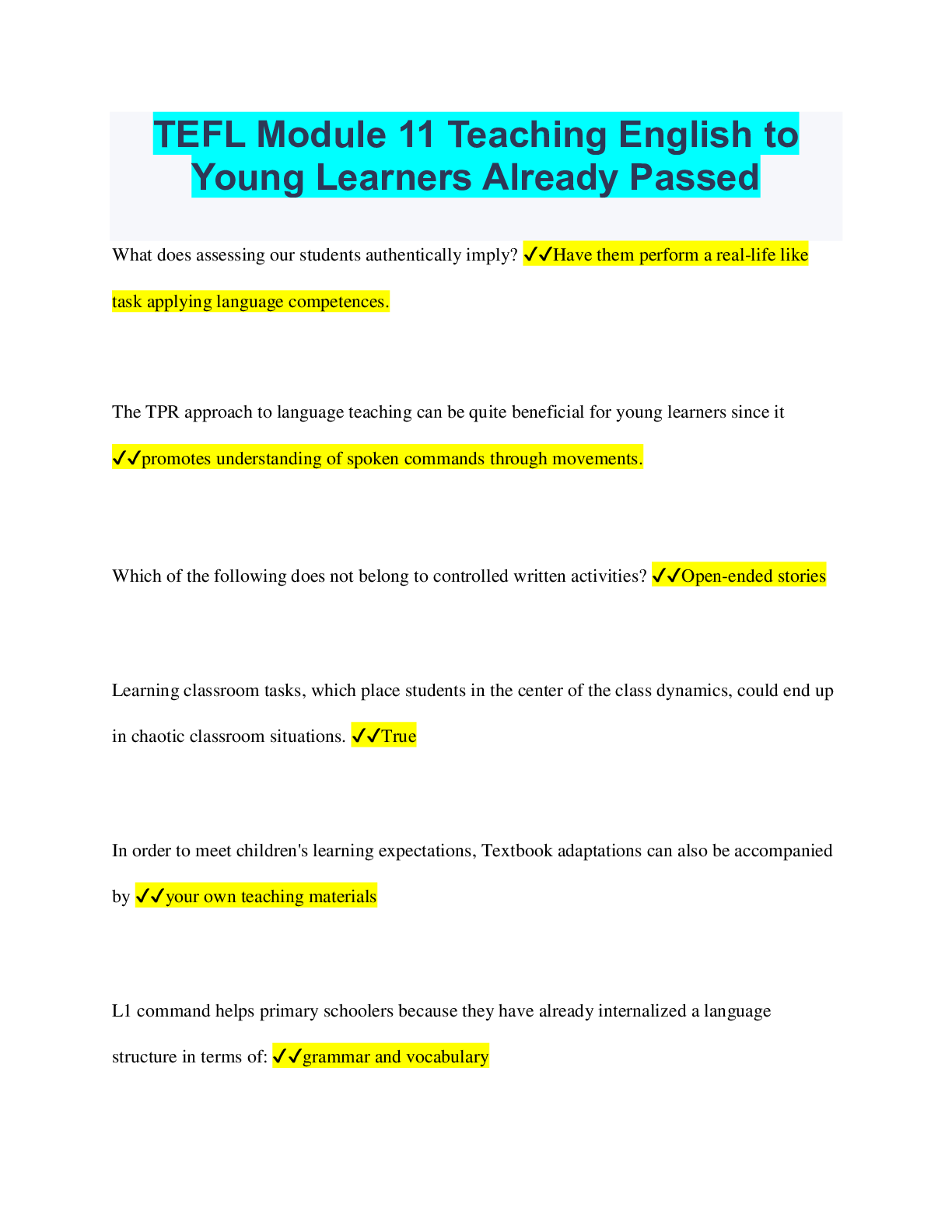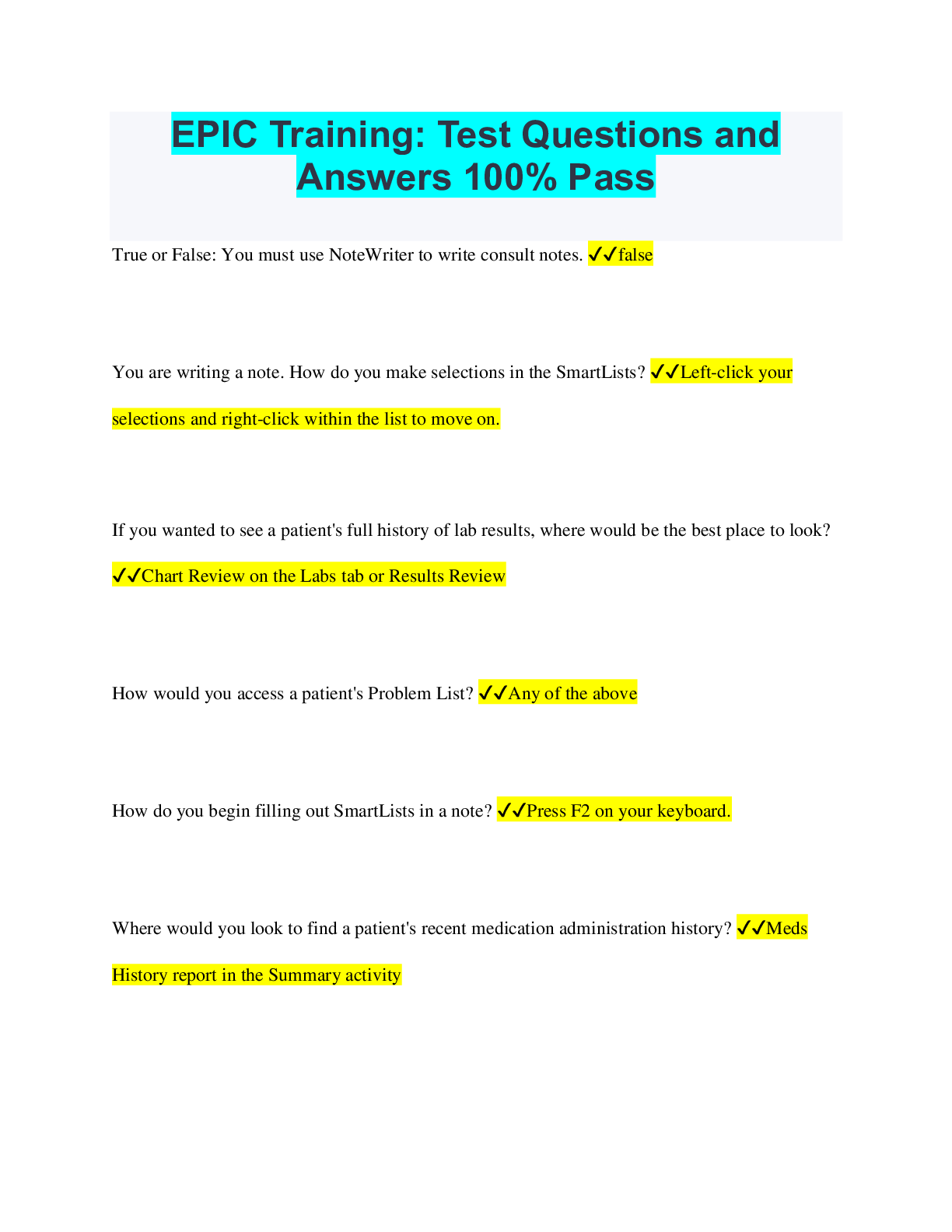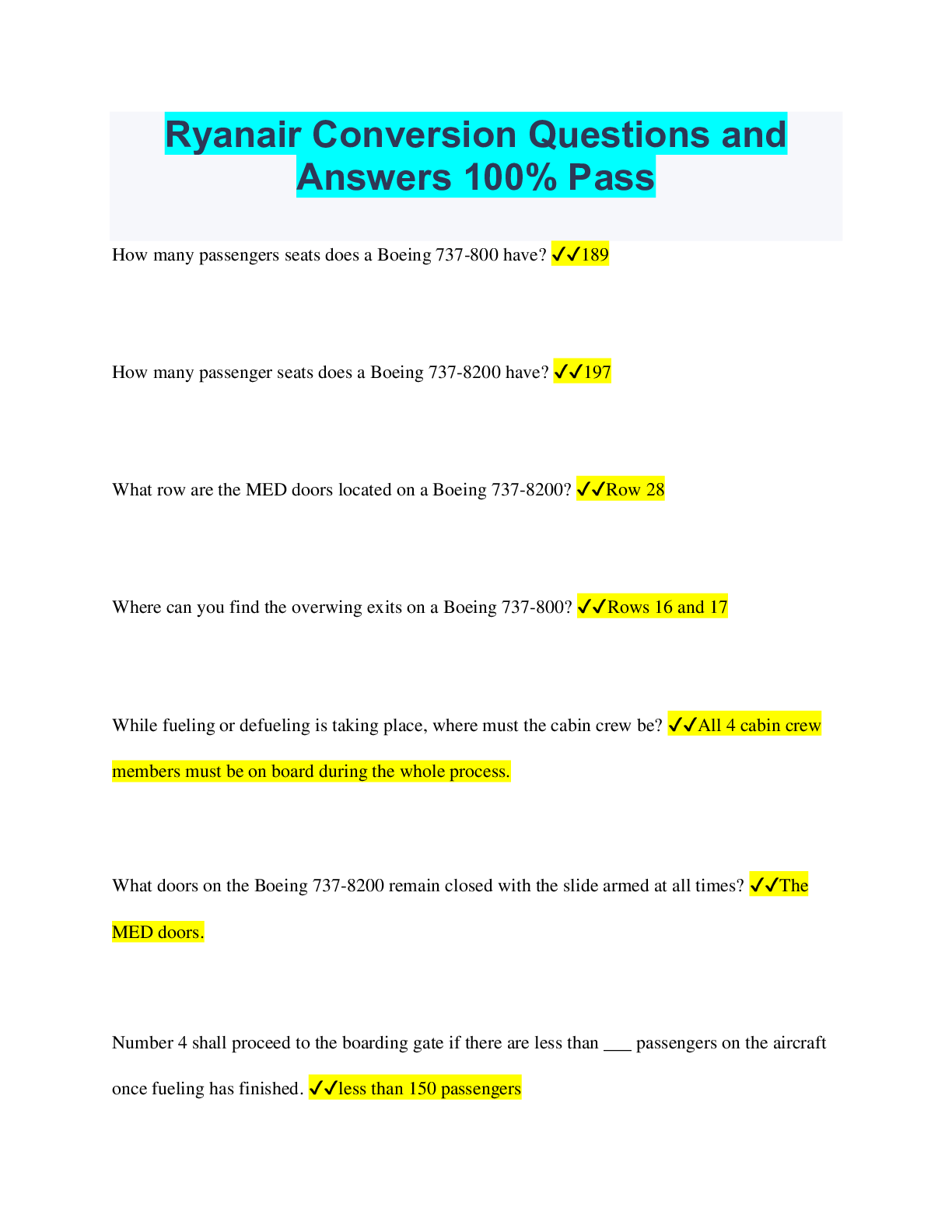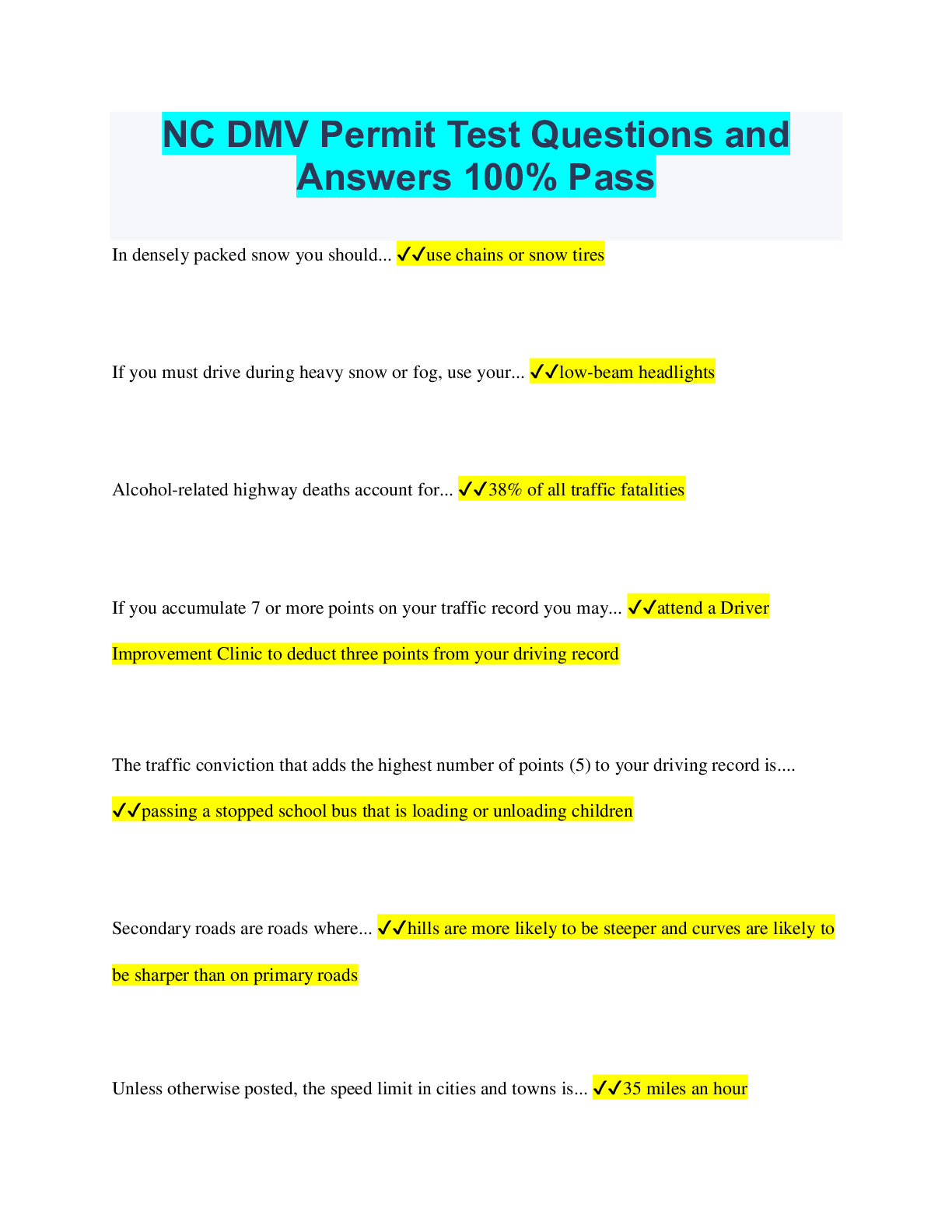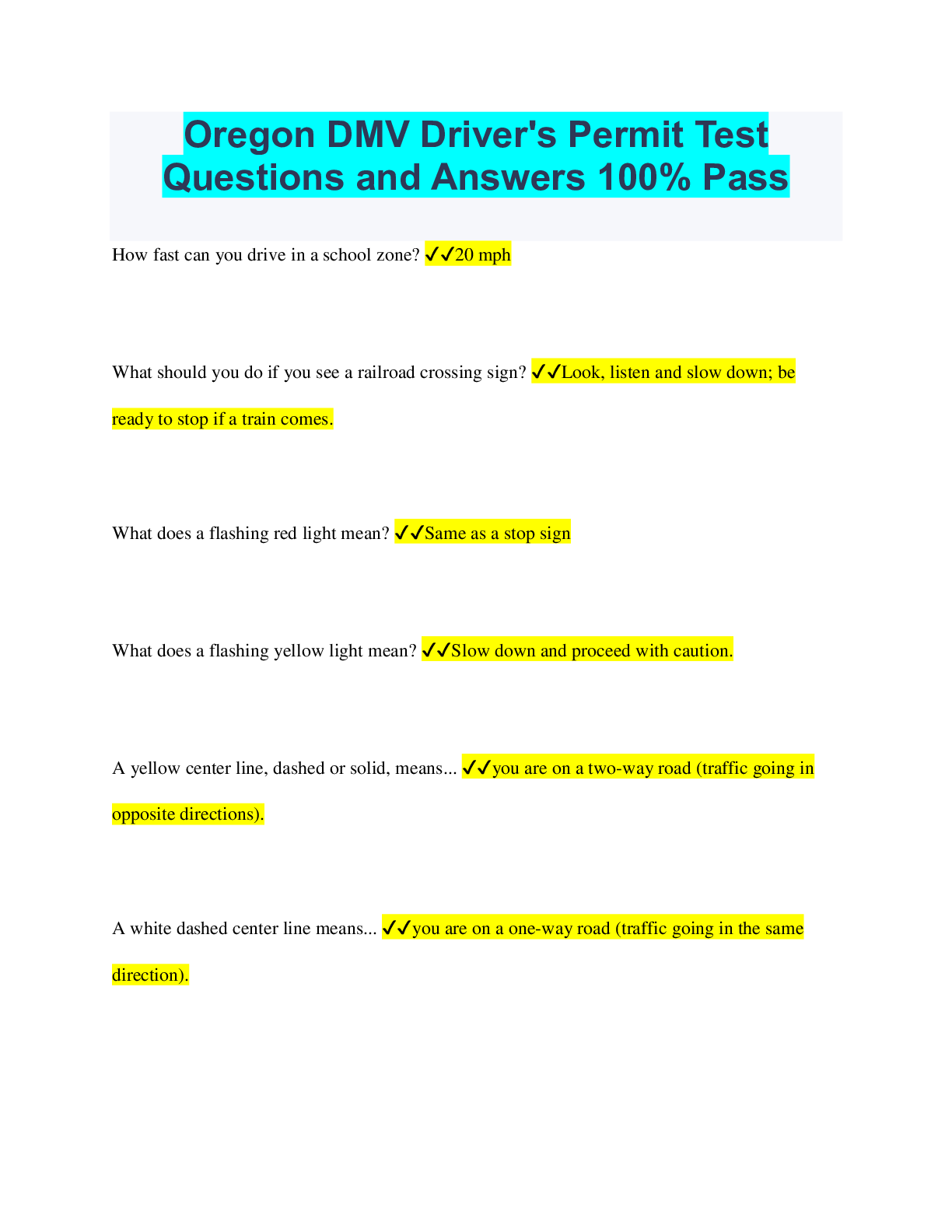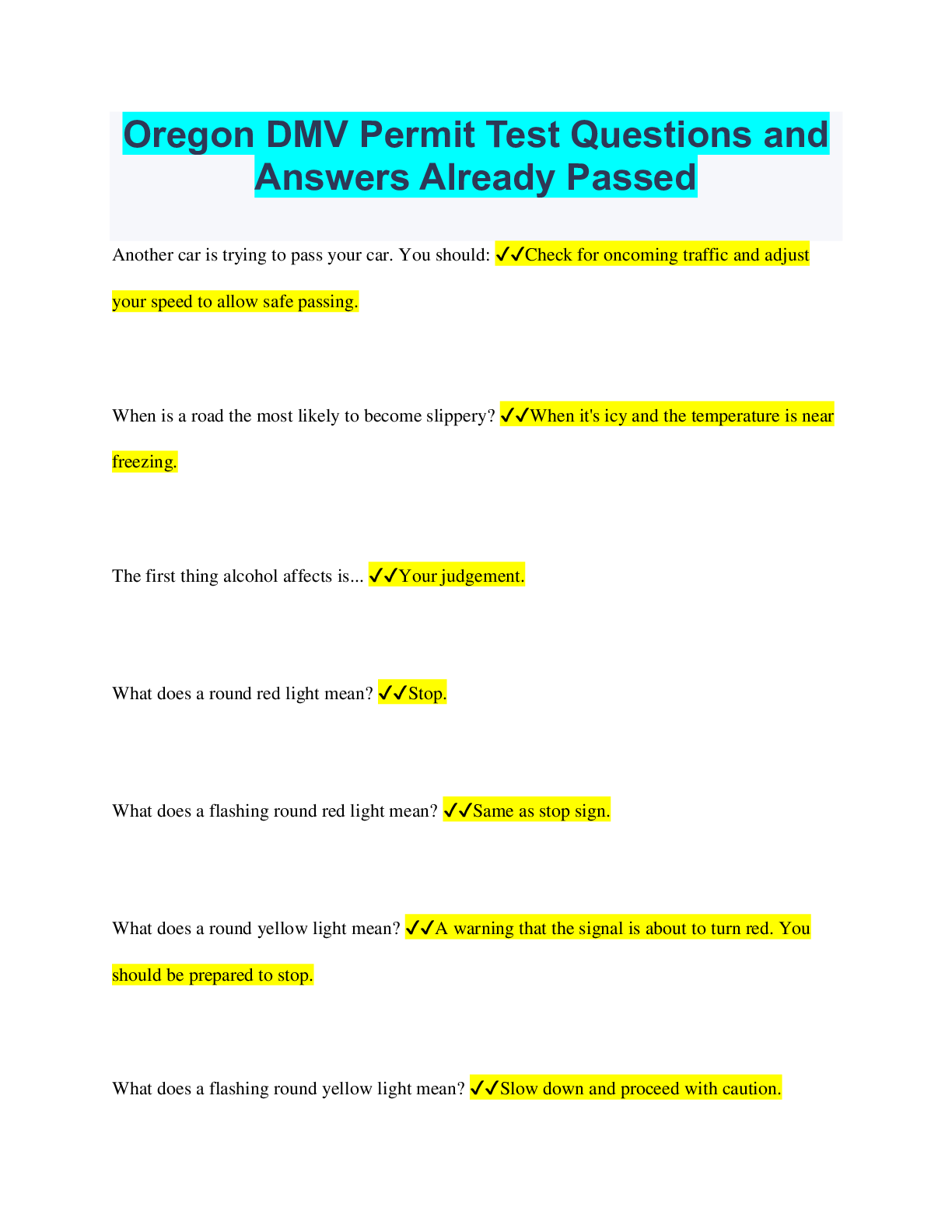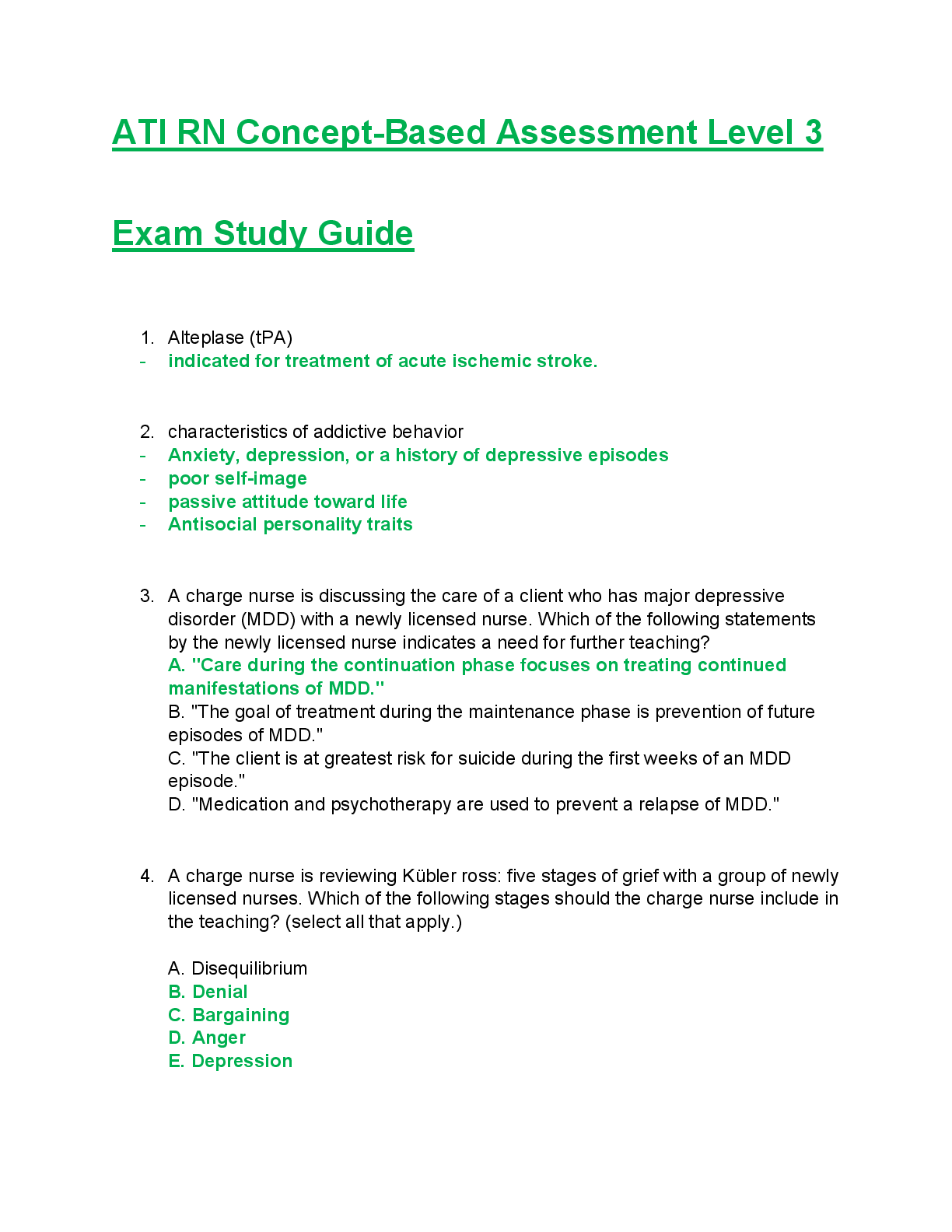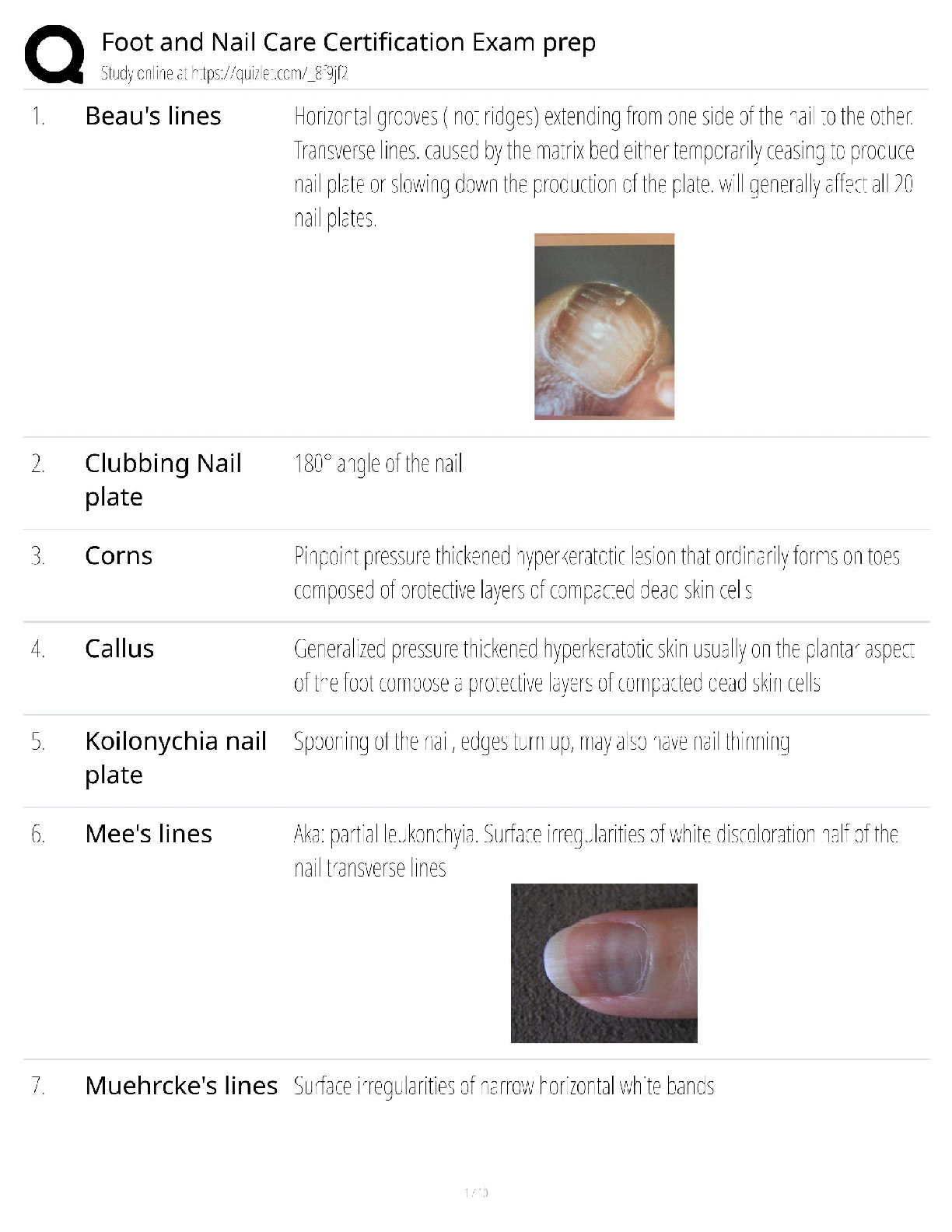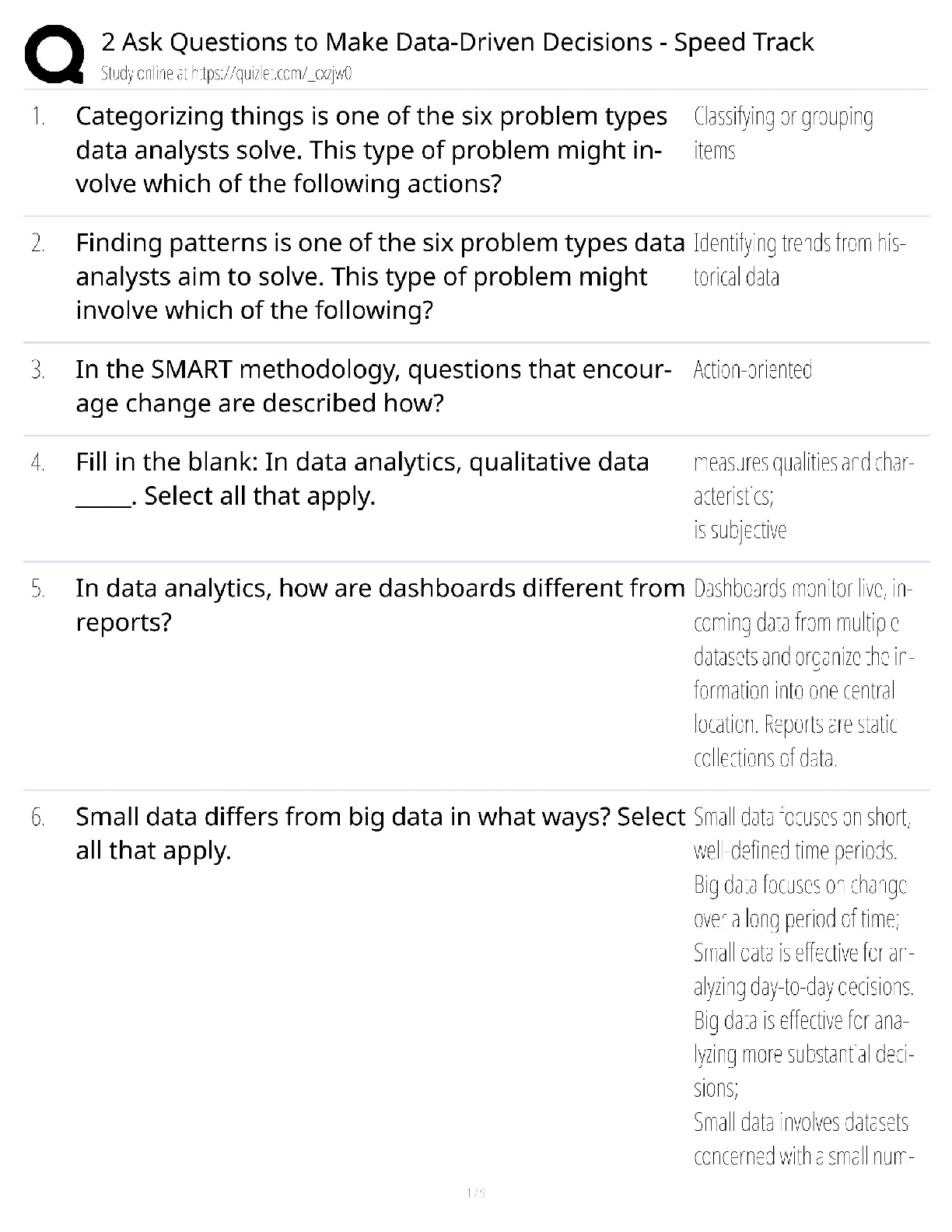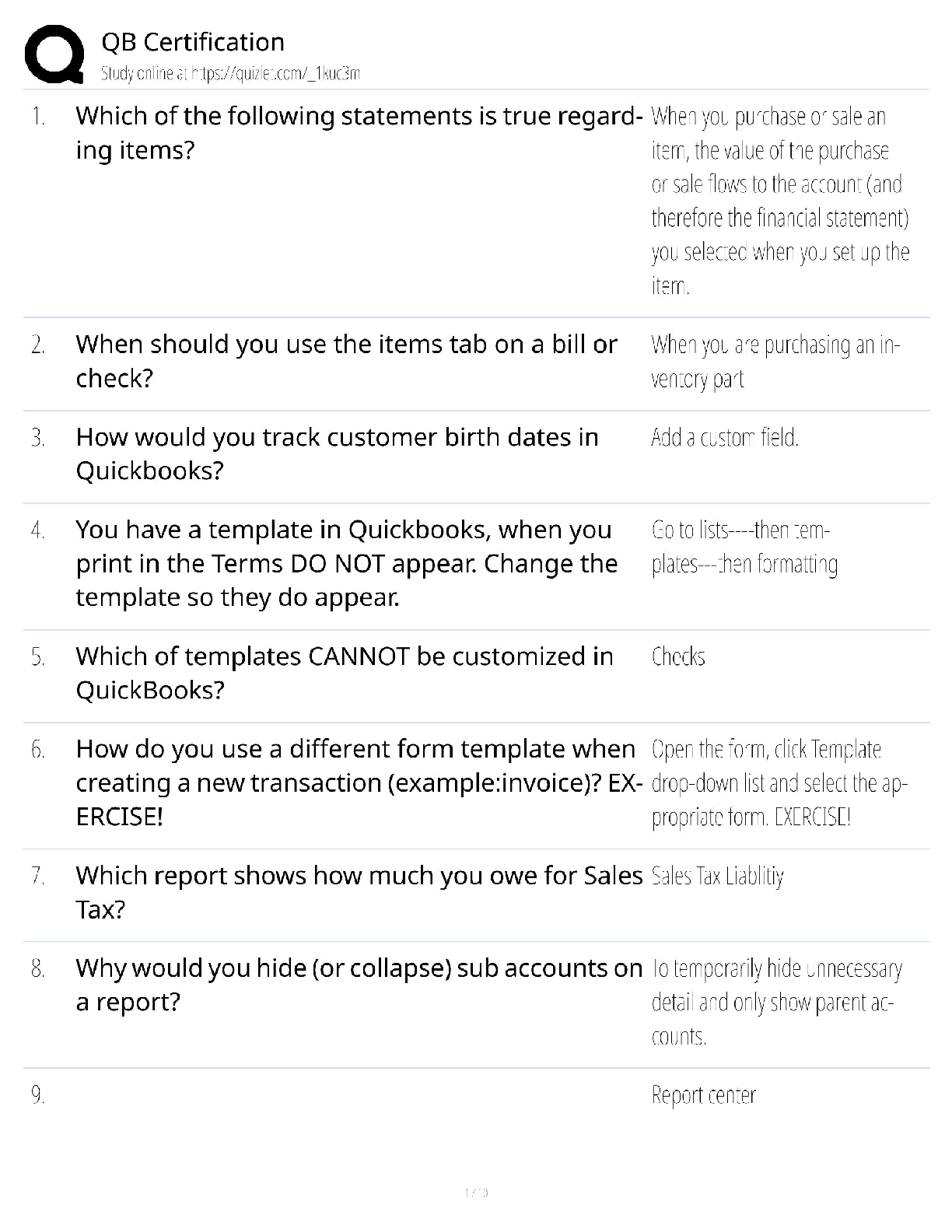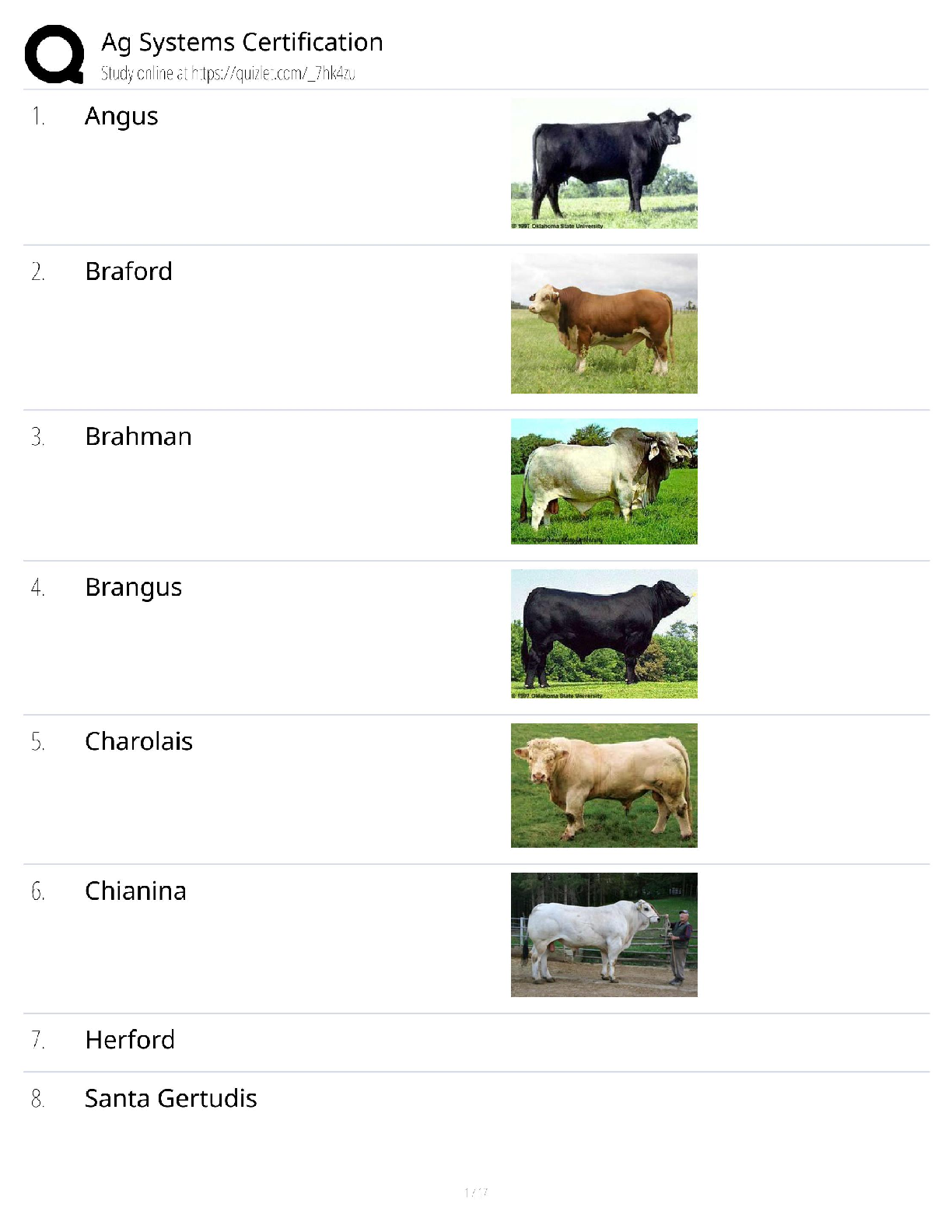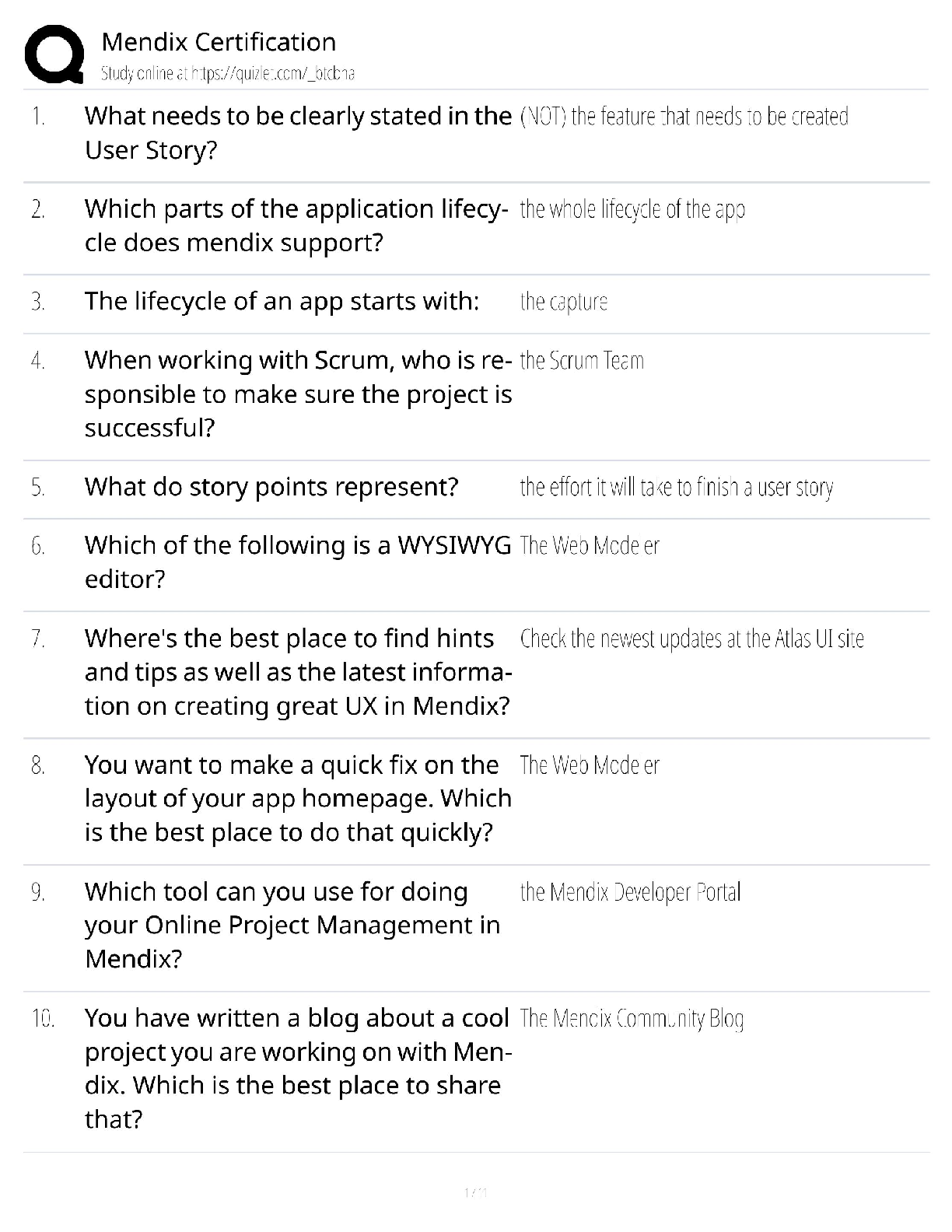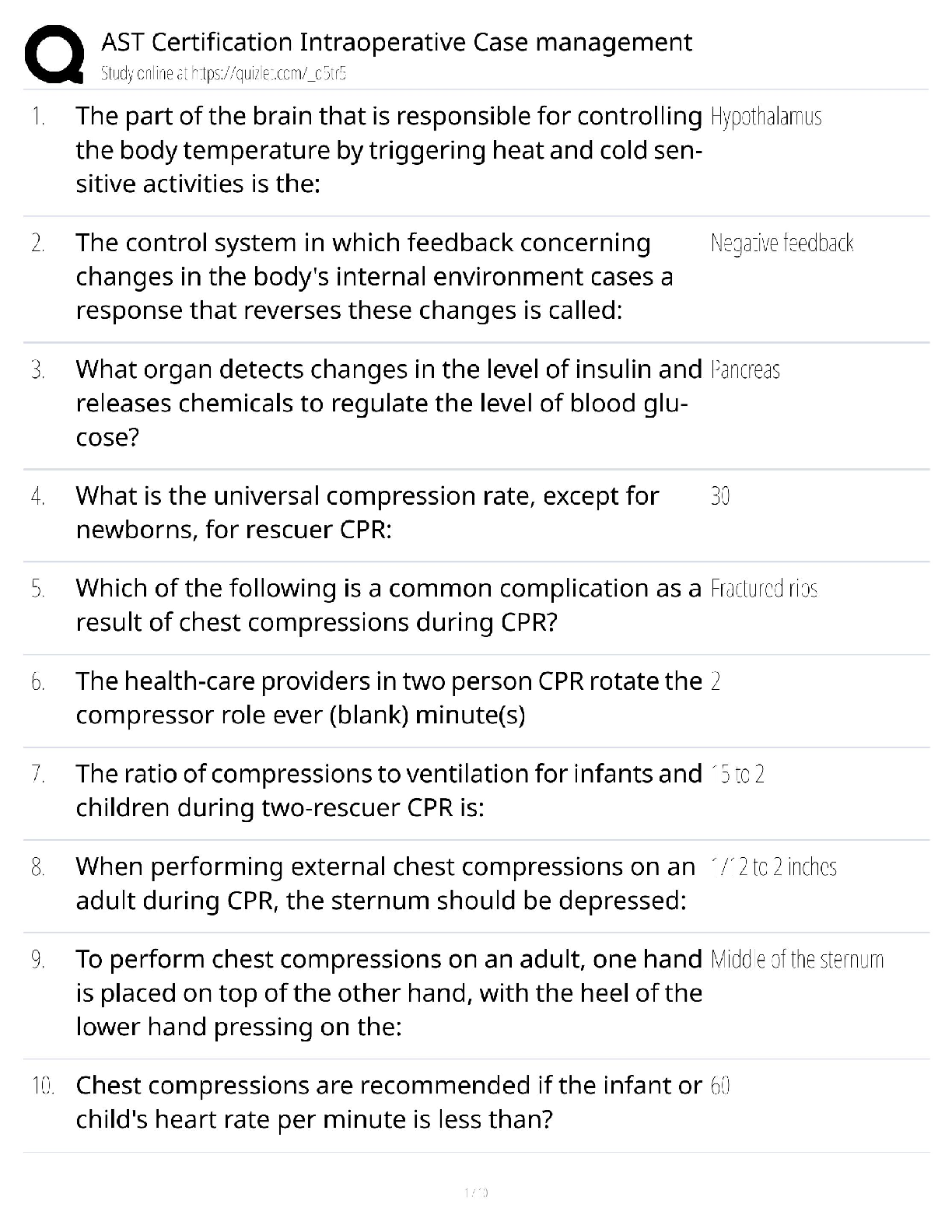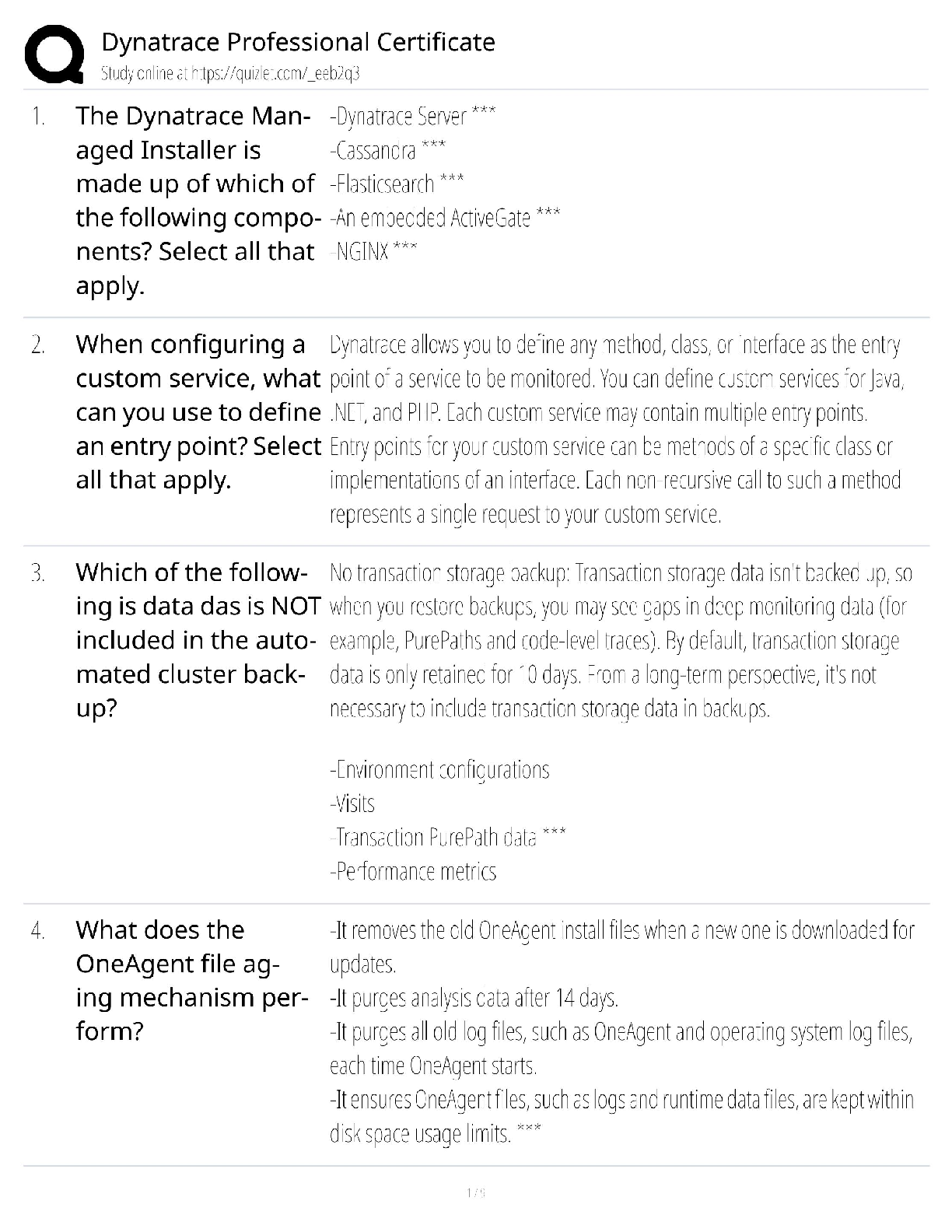Psychology > QUESTIONS & ANSWERS > Edexcel GCSE Psychology - The Self Latest 2023 Graded A+ (All)
Edexcel GCSE Psychology - The Self Latest 2023 Graded A+
Document Content and Description Below
Edexcel GCSE Psychology - The Self Latest 2023 Graded A+ Self concept ✔✔how you see yourself based on how others see us and own beliefs Self actualisation ✔✔achieving one's full potential a ... nd what we can become Self esteem ✔✔how we value ourselves ideal self ✔✔how we would like to be true (real) self ✔✔who we actually are Self image ✔✔how we see our selves Congruence ✔✔ideal self and self image are similar and self actualization is possible Incongruence ✔✔ideal self and self image are different and self actualization is difficult Well adjusted personality ✔✔ideal self, self image, true self, aligning Mal adjusted personality ✔✔ideal self, self image and true self not aligning with self concept Conditions of worth ✔✔according to Rogers, expectations we place on ourselves for appropriate and inappropriate behavior Conditional positive regard ✔✔there are conditions for someone to be accepted or loved Unconditional positive regard ✔✔accepting and supporting someone no matter what they say or do Stage 1: Trust vs. Mistrust ✔✔• 0-1; most fundamental stage in life b/c an infant is utterly dependent, TRUST VS. MISTRUST; no one develops 100% Stage 2: Autonomy vs. Shame and Doubt ✔✔• 1-3; early childhood - children developing AUTONOMY • TOILET TRAINING (food choices, toy preferences, & clothing) vital to process b/c learning to CONTROL BODY FUNCTIONS & CHOICE leads to feeling of control & indepen. • balance = will Stage 3: Initiative vs. Guilt ✔✔• 3-5; preschool kids begin to ASSERT POWER & CONTROL over the world THROUGH PLAY & SOCIAL INTERACTIONS; CONFIDENT can lead others • balance = purpose Stage 4: Industry vs. Inferiority ✔✔5-12 years Can I keep trying? Perseverance Capacity to work, to problem solve Teachers play a big role Stage 5: Identity vs. Role Confusion ✔✔12-18 years Who am I? Family, friends, teachers, coaches, mentors Where do I fit in? What do I want to do? What do I believe? Answering these questions for yourself leads to knowing who you are Stage 6: Intimacy vs. Isolation ✔✔-18 to 40 years -how do I love? -how do I want to be loved? -what do relationships mean to me? -romantic relationships and friendships -commitment Stage 7: Generativity vs. Stagnation ✔✔(40 - 65) - Marriage/Parenthood - Working cooperatively and productively becomes most important rather than independent goals Stage 8: Integrity vs. Despair ✔✔- old age, 65-85 -How have I lived my life? -Finding the meaning in one's life - going within Strengths of Erikson's Psychosocial Theory ✔✔- applied to people all throughout their lives - Practical application Weaknesses of Erikson's Psychosocial Theory ✔✔- diff cultures have diff age development - gender stereotyping Free will ✔✔ability to choose exactly what type of behaviour we want to show Determinism ✔✔our actions come from what we are born with and what we experience Hard determinism ✔✔the belief that crime results from forces beyond the control of the individual Soft determinism ✔✔the belief that human behavior is the result of choices and decisions made within a context of situational constraints and opportunities strengths of Free will theory - Baumeister ✔✔- can be measured - scientific experiments (vohs and schooler) weaknesses of free will theory - Baumeister ✔✔- reduces free will to small measurable behaviours - evidence that randomness may be mistaken for free will Maslow's Hierarchy of Needs ✔✔physiological, safety, love/belonging, esteem, selfactualization Strengths of Maslow's theory ✔✔- Uses positive psychology - helps build positive culture weaknesses of Maslow's theory ✔✔- focus on western culture - not really measurable Internal influences on self (and self esteem) ✔✔- Temperament (emotions and self control) biological aspect - affects self-concept Effortful control - self-regulation Persistence Effortful control ✔✔using reasoned effort to control actions and thoughts External influence on Self (and self esteem) ✔✔- Experiences - influence of parents and how others see us Self efficacy ✔✔An individual's belief we can achieve a certain task Self ✔✔organizer of our thoughts, feelings, and actions Trait theory of personality ✔✔we are made up of traits which are characteristics on a continuum Type theory of personality ✔✔personalities are sets of distinct qualities and dispositions into which people can be grouped (we are either 1 thing or another thing) Cardinal traits (allport) ✔✔rare traits that govern us strongly Central traits (allport) ✔✔more common - less strong traits secondary traits (Allport) ✔✔traits we have but don't always show Catell Personality theory ✔✔16 personality traits that we all possess Big 5 Personality Traits ✔✔O - Openness C - Conscientiousness E - Extraversion A - Agreeableness N - Neuroticism (tendency to feel depressed) Likert-type scale ✔✔A scale where a person can rate their level of agreement to a statement existential self ✔✔awareness that you are separate from others Categorical self ✔✔awareness that we are seen by others by means of categories Identity ✔✔who or what someone or something is 16PF ✔✔a personality test based on peoples own judgement of themselves on 16 factors factor analysis ✔✔using statistical analysis to find overarching patterns [Show More]
Last updated: 2 years ago
Preview 1 out of 9 pages
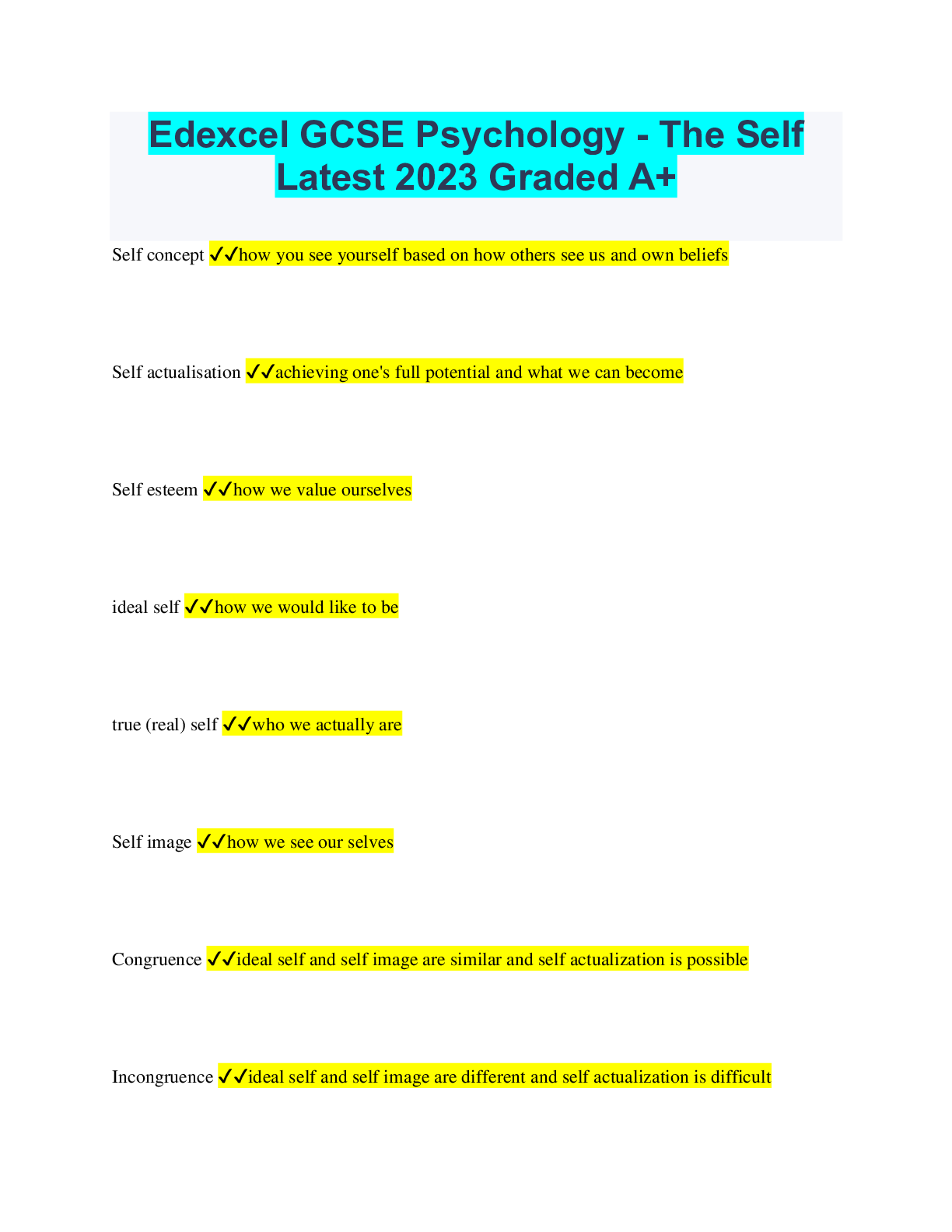
Buy this document to get the full access instantly
Instant Download Access after purchase
Buy NowInstant download
We Accept:

Also available in bundle (2)
Click Below to Access Bundle(s)

GCSE Psychology Bundled Exams Questions and Answers with Verified Solutions
GCSE Psychology Bundled Exams Questions and Answers with Verified Solutions
By Nutmegs 2 years ago
$22
15

EXCEL BUNDLED EXAMS QUESTIONS AND ANSWERS (2022/2023) WITH VERIFIED SOLUTIONS
EXCEL BUNDLED EXAMS QUESTIONS AND ANSWERS (2022/2023) WITH VERIFIED SOLUTIONS
By Nutmegs 2 years ago
$30
29
Reviews( 0 )
$10.00
Can't find what you want? Try our AI powered Search
Document information
Connected school, study & course
About the document
Uploaded On
May 10, 2023
Number of pages
9
Written in
All
Additional information
This document has been written for:
Uploaded
May 10, 2023
Downloads
0
Views
260

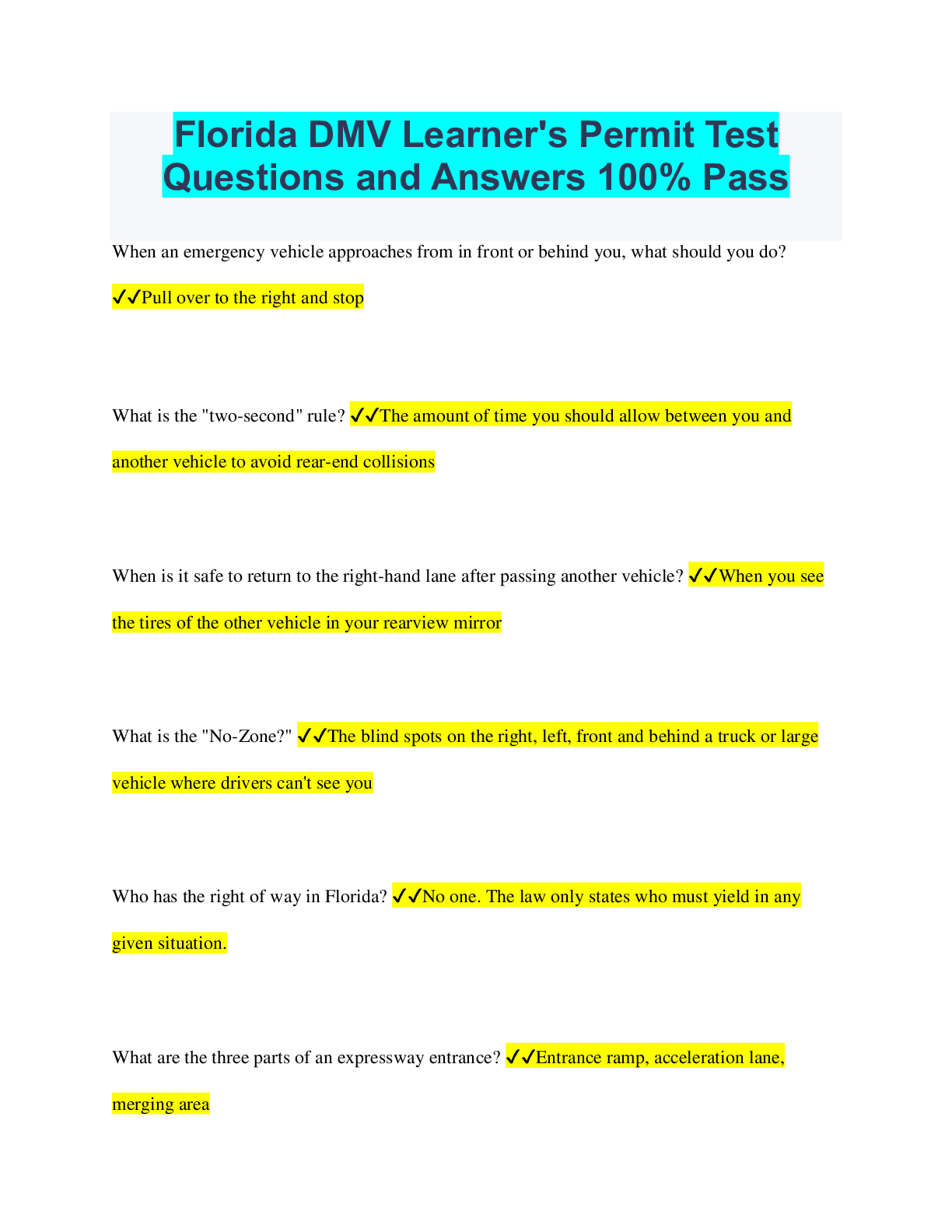
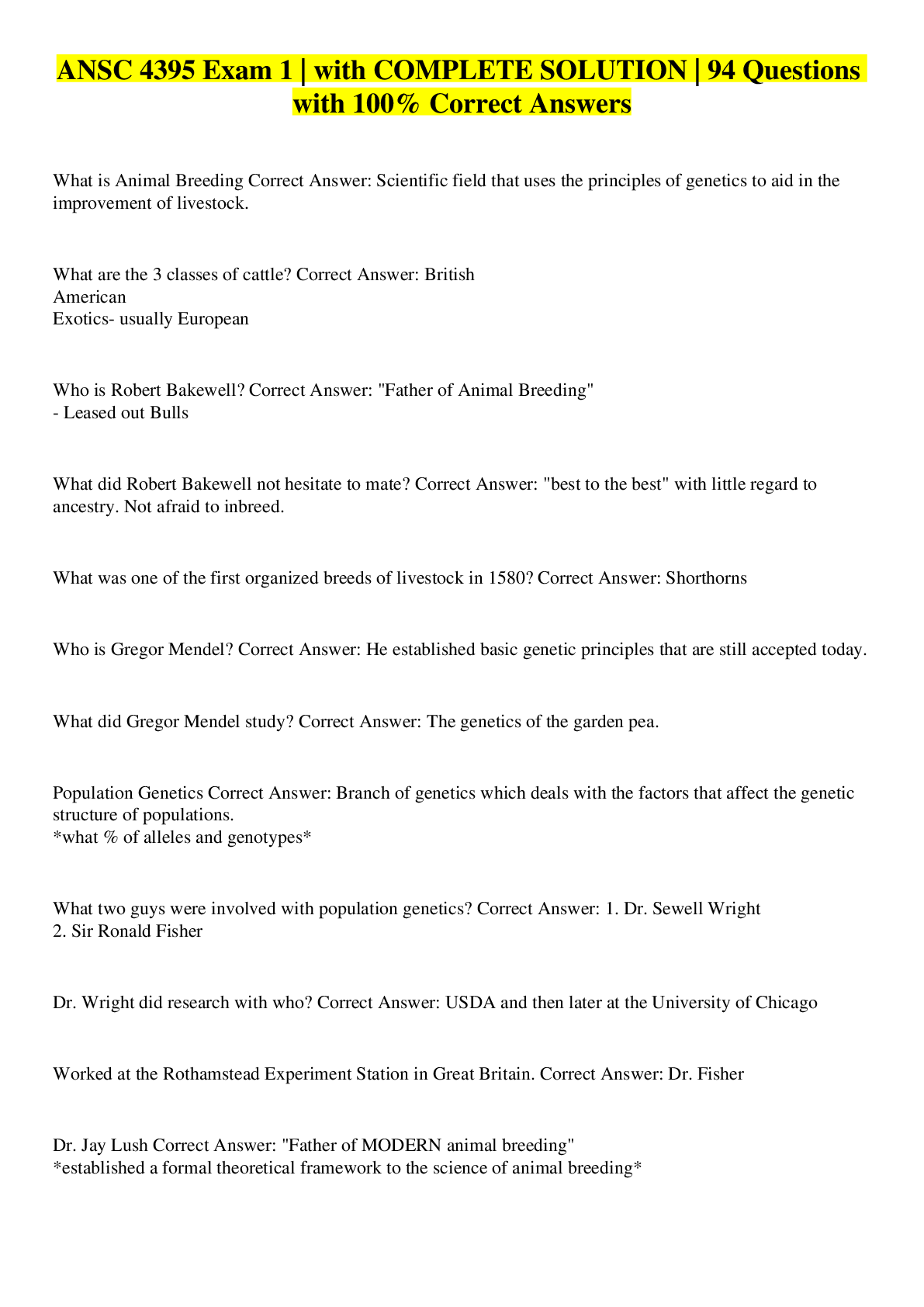

.png)

